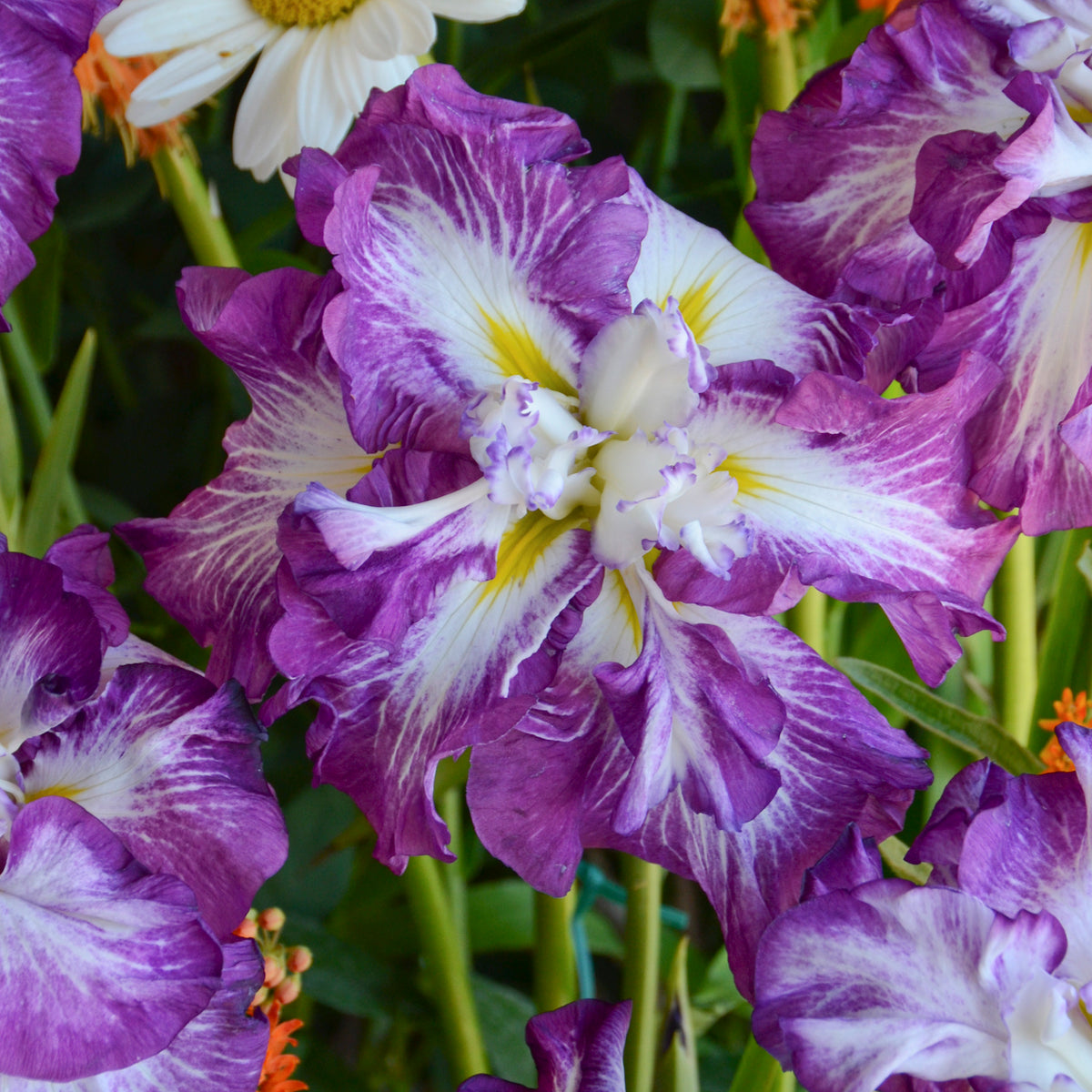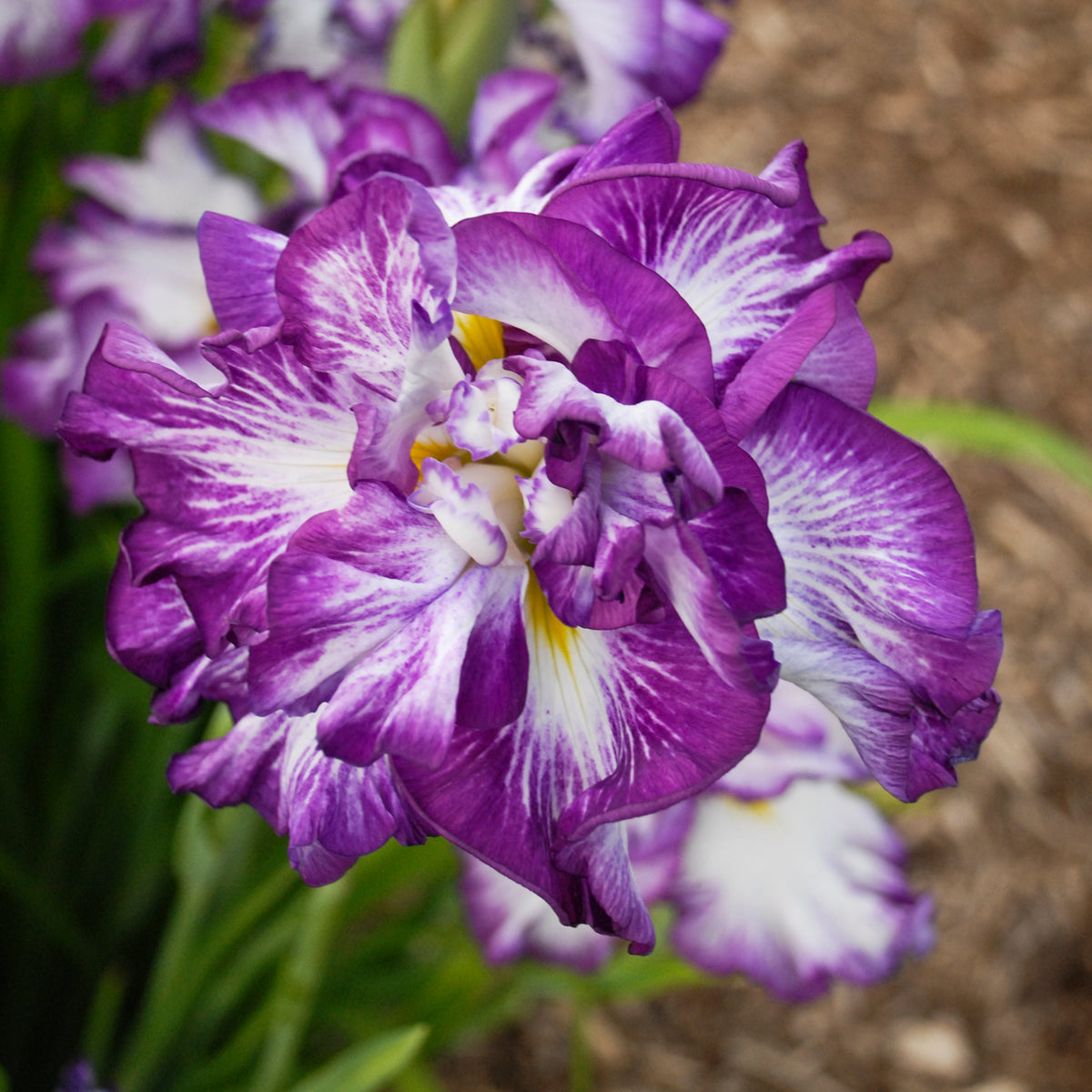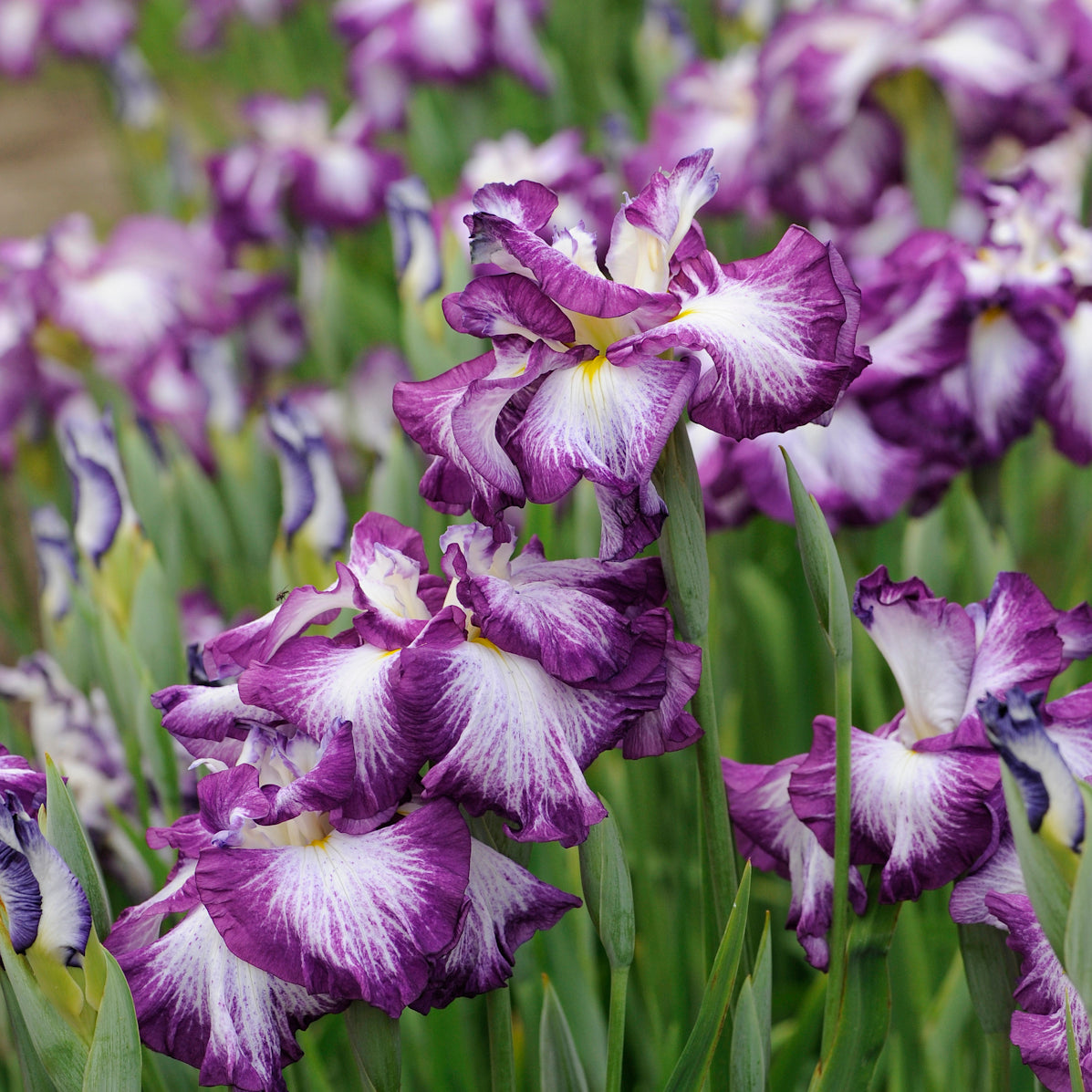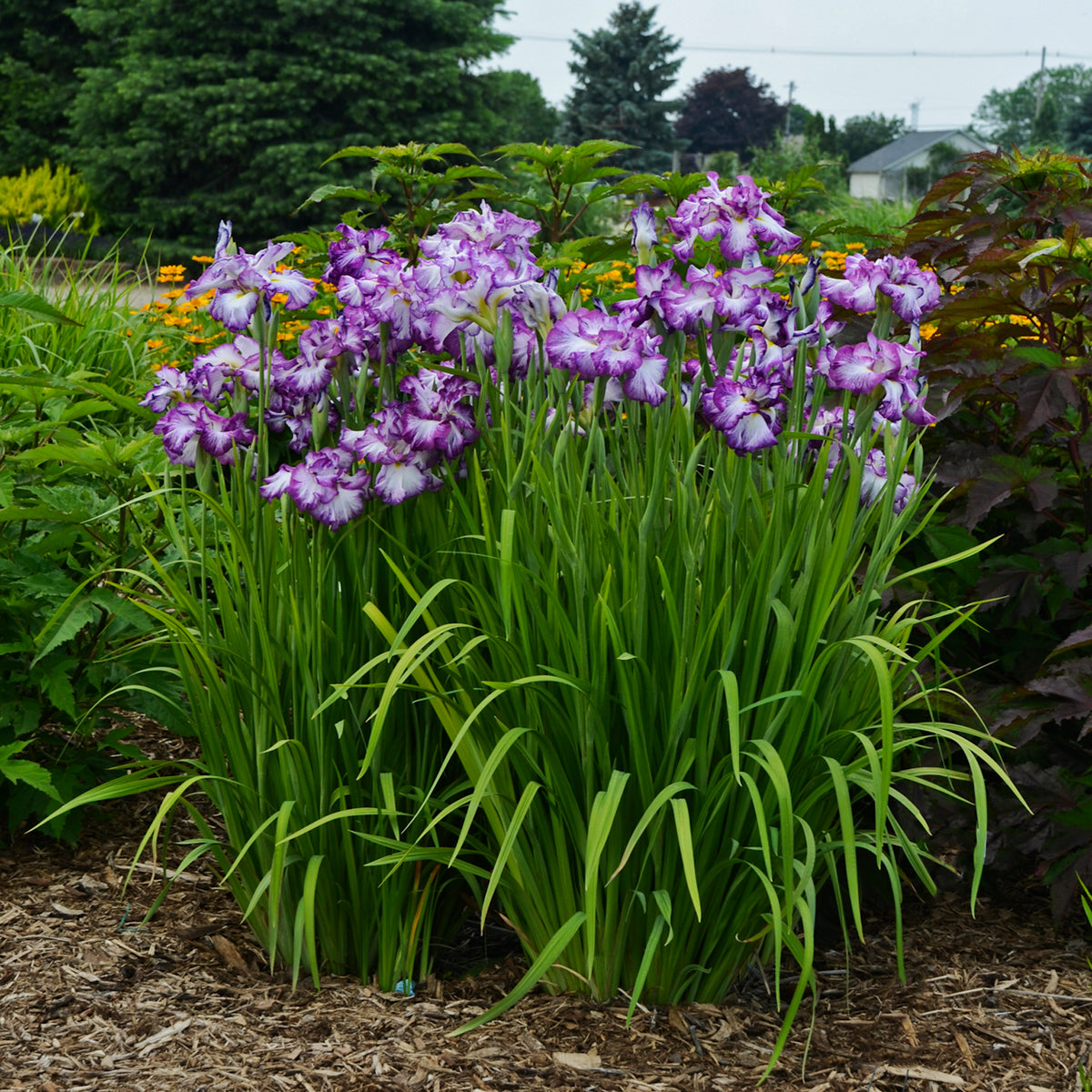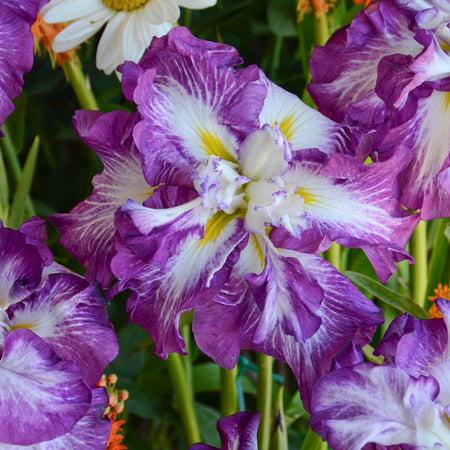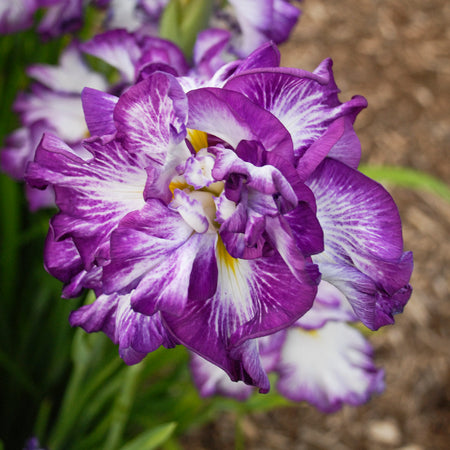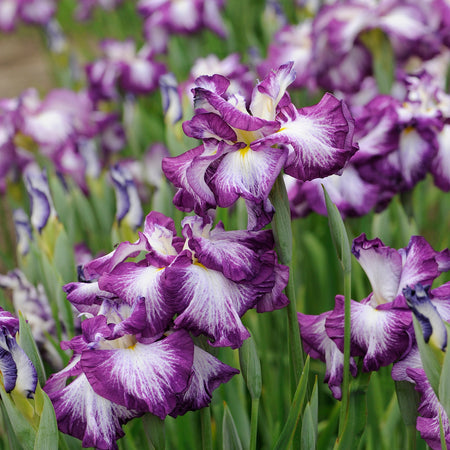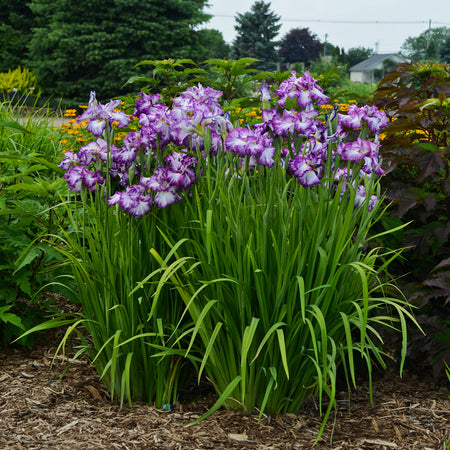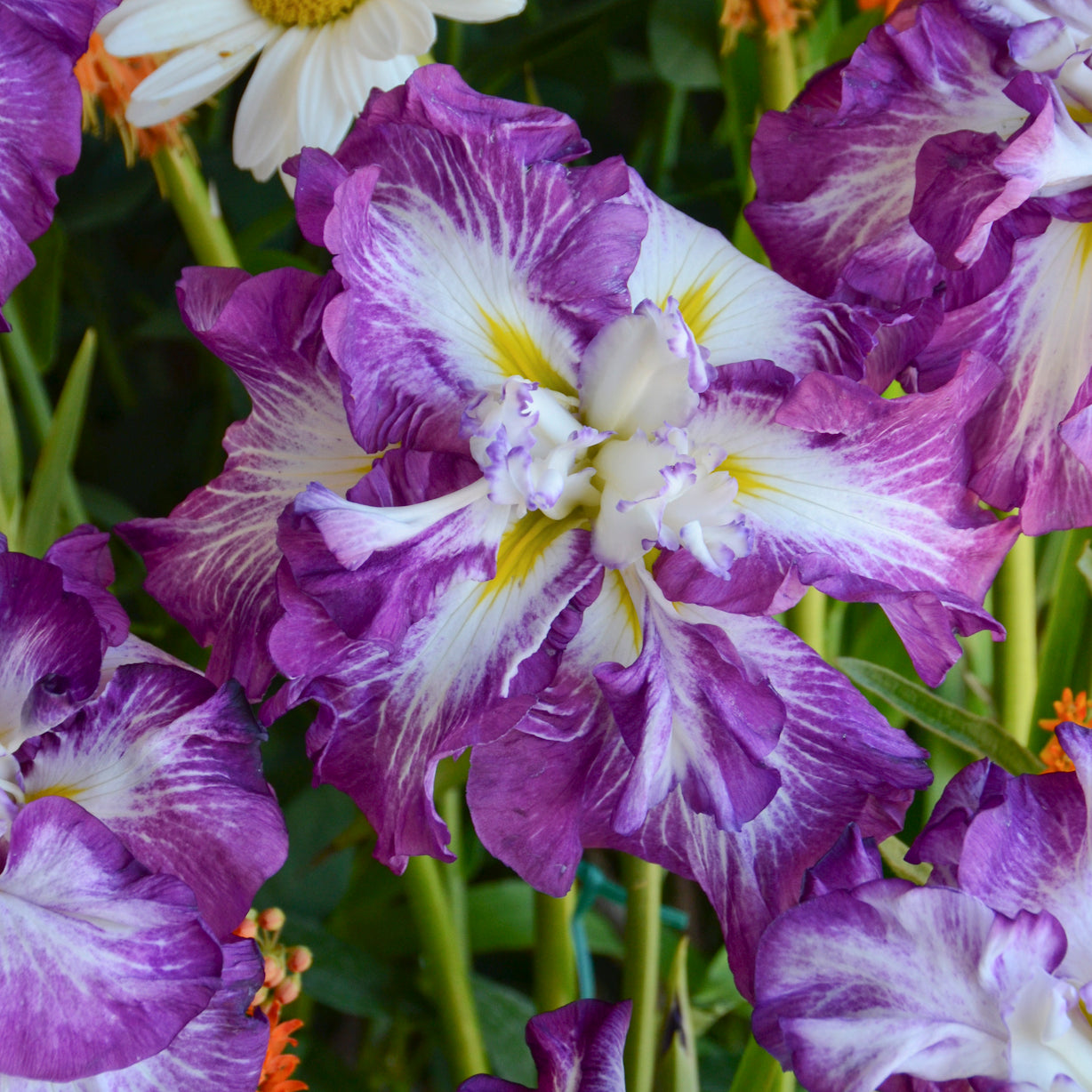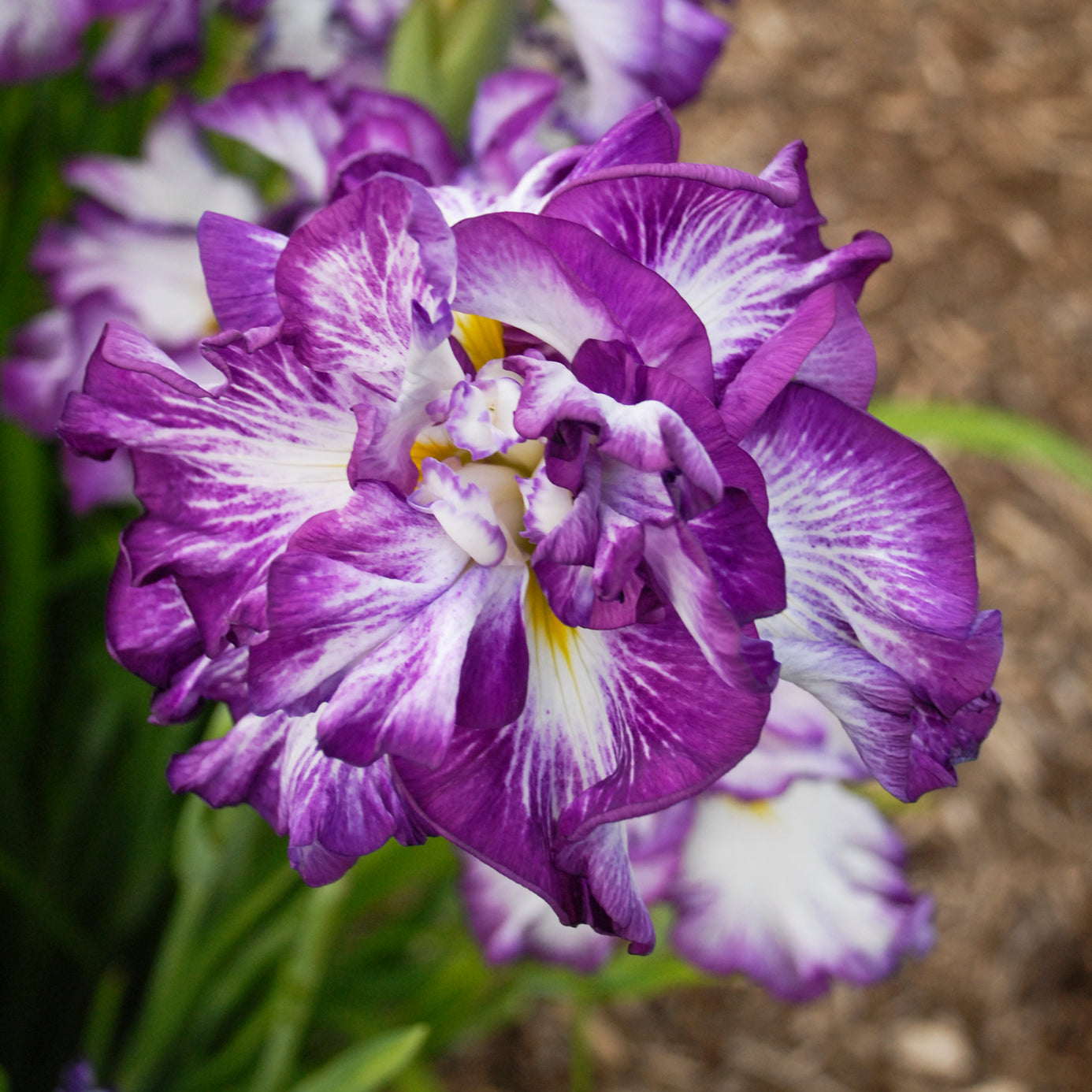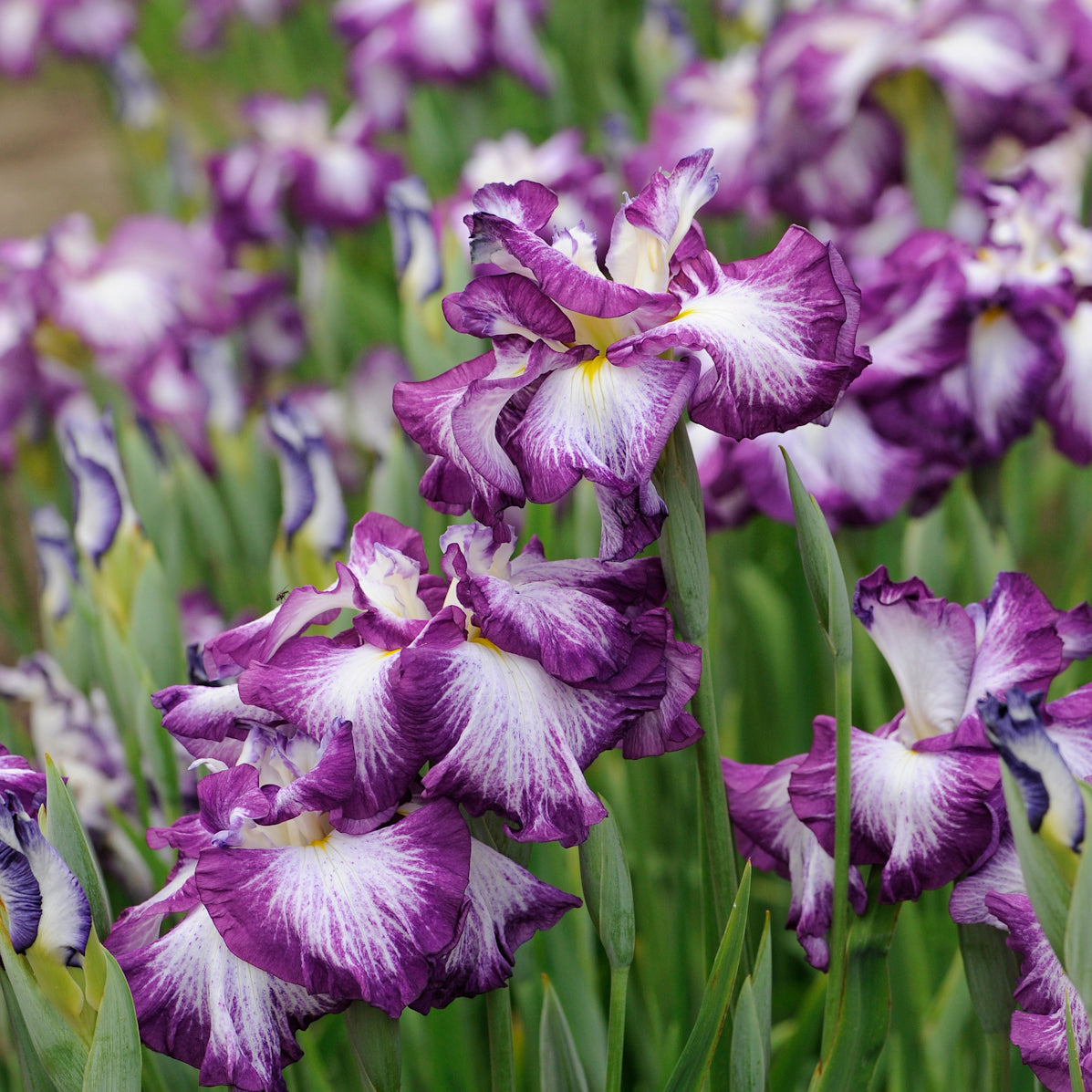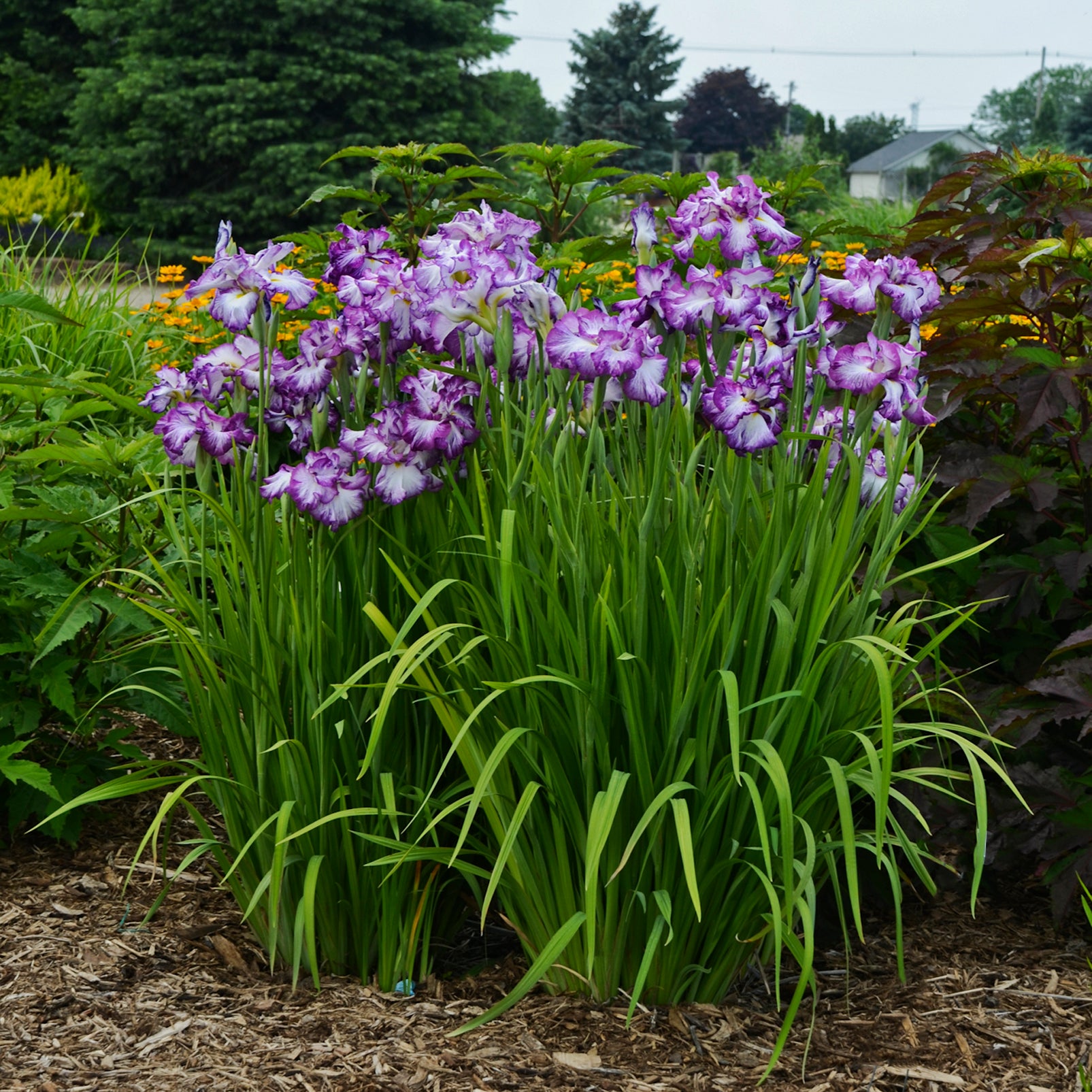Iris ensata 'Lion King' - Japanese Iris
Iris ensata 'Lion King'
Mature Height: 3 to 4 ft.
Mature Spread: 24 to 28 inches
Couldn't load pickup availability
Shipping
Wow. If you want a plant that will stop your neighbors dead on the sidewalk it is impossible to look past the 'Lion King' Japanese Iris. The flowers on these plants can top out at stately 4 ft. At the top rises a gigantic 8" double bloom flower with edges of bright purple that feather into white and then yellow centers. Ruffles and folds give the flowers a depth of field that bring them to life when stirred by a gentle breeze. The bloom period for these iris are in the early summer and last around two week, but even after bloom the grasslike foliage is appealing in a garden. Plant a clump of these in a dedicated space and for two to three weeks you'll have something extremely special.
| Bloom Color: | Purple feathers to white and sunshine yellow centers |
| Bloom Period: | Early Summer |
| Genus & Species: | Iris ensata 'Lion King' |
| Mature Height: | 3 to 4 ft. |
| Mature Spread: | 24 to 28 inches |
| Plant Spacing: | 18 to 24 inches |
| Planting Depth: | Crown level with the soil line |
| Planting Time: | Division is preferred in fall, but also possible in spring |
| Soil Type: | Moist well drained soil (Consistently moist soil is ideal) |
| Sun Exposure: | Full sun (6+ hours) to part shade |
| Zone: | 4 to 9 |
General care for any tree or shrub is easy, but like any living thing will require your attention. Please educate yourself and follow these simple rules.
Iris ensata 'Lion King' - Japanese Iris
The is no other more important factor for a Japanese iris than water. These plants need consistent moisture all year round and if they don't receive it flowers and foliage will be stunted and underperform. This makes them very lovely plants near streams or ponds where water is consistent and the water table remains high. They do require drainage and so water should not cover the roots, it should simply be consistently present. Mulch is a key factor in retaining moisture, so mulch them consistently to make sure that they don't dry out. They like heavy, acidic, rich soil with lots of fertilization. Slow release fertilizer and compost are good adamants for this. For new plantings, do not add granular fertilizer around your newly planted irises. Instead, add the fertilizer to the soil a month or two before planting the Japanese Irises. Once established, fertilize them in early spring and again right after they are finished blooming. Divide these plants every 3-4 years. Do your division in the spring or fall and simply dig up the entire clump then replant the divisions in another location. Plant rhizomes 2-3 inches deep, as new roots will form in the soil above the old roots. When you start to see new roots at the surface it will be time to divide them again.

